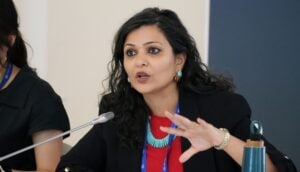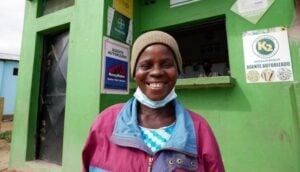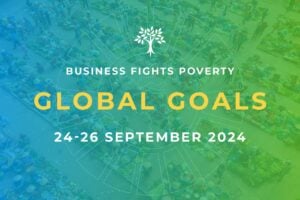The journey from inception to scale in inclusive business takes around a decade. And the journey is not just a bumpy ride, but a zigzag route. These are two conclusions drawn from the experience so far of around 40 businesses that received technical support from the Business Innovation Facility between 2010 and 2013.
Most of the companies are only half way through that estimated decade, so we may well yet be proved wrong. But what we can see so far is the inception of the idea, design, testing, adapting and starting operation can take from years 1 to 4 or 1 to 5. The three examples in the diagram show how these phases have evolved for three inclusive businesses: Stanbic IBTC Bank in Nigeria, setting up its Smallholder Finance Scheme; ACI, an agribusiness conglomerate in Bangladesh, setting up contract farming with farmers; and MEGA, a start-up energy company that has just switched on its first micro-hydro plant in Malawi, serving isolated communities.
The ideas were conceived in 2008, 2009 and 2010. Stanbic has just had good results from the 2013 pilot and is set to expand, so we count it as now moving from the ‘validation’ phase into the ‘implementation’ stage. ACI has completed its first pilot, in which the harvest failed but the model was well tested and lessons for the next iteration emerged. It is still in the ‘early operation and validation stage’ as is MEGA, which is refining the model at the first micro-hydro site at Bondo, then planning to expand to many more sites (for which investment is still needed).
Why does the journey take so long? Well there are a host of very practical reasons: delays at custom, time to find finance, staff turnover (10 reasons inclusive business stalls are explained in ). But there is a fundamental reason too, and its a reason that is particularly relevant to inclusive business. The business model is key (see blog 1 in this series), but models that work at the BoP and work commercially for the business need innovation. They cannot be designed in a lab, but develop only through testing on the ground and engagement at the BoP. In BIF we observed that companies make several ‘turning points’ on their inclusive business journey as they discover more about how to adapt the business model. This is what results in a zigzag path.
Two examples of consumer-focused inclusive businesses that changed course are iSchool in Zambia and mKRISHI®in India, illustrated in the diagram: iSchool has slashed cost per pupil per term of its rich e-learning resource from $15 to $4, but in the process it overhauled the product and adapted its target segments and channels. The mKRISHI® initiative of Tata Consultancy Services in India similarly transformed the core product, from interactive advisory services on a mobile phone, to a cloud based solution for a host of agricultural and rural transactions that will enable farmers to reach up and down the value chain. As the product changed, so did the partnerships, marketing, distribution channels and revenue system.
Not every business in the BIF portfolio has such clear turning points and new phases, but these two are far from alone. We perceive the zigzags as an expected part of the journey, part of the process of innovation that leads to a business model that works.
The journeys discussed above, and others, are covered in The 4Ps of Inclusive Business: How perseverance, partnerships, pilots and passion can lead to success,> by Tom Harrison, Carolin Schramm and myself, which was launched last week. It is one of two final reports from the Business Innovation Facility (BIF), during its pilot phase in Bangladesh, India, Malawi, Nigeria and Zambia. While BIF worked with hundreds of companies, it engaged with 40 most intensively, and tracked their progress closely. This is the second blog in a series drawn from the final findings of BIF. The 4Ps report, and other blogs in this series, share what we have learnt about their business models, journeys and results.









